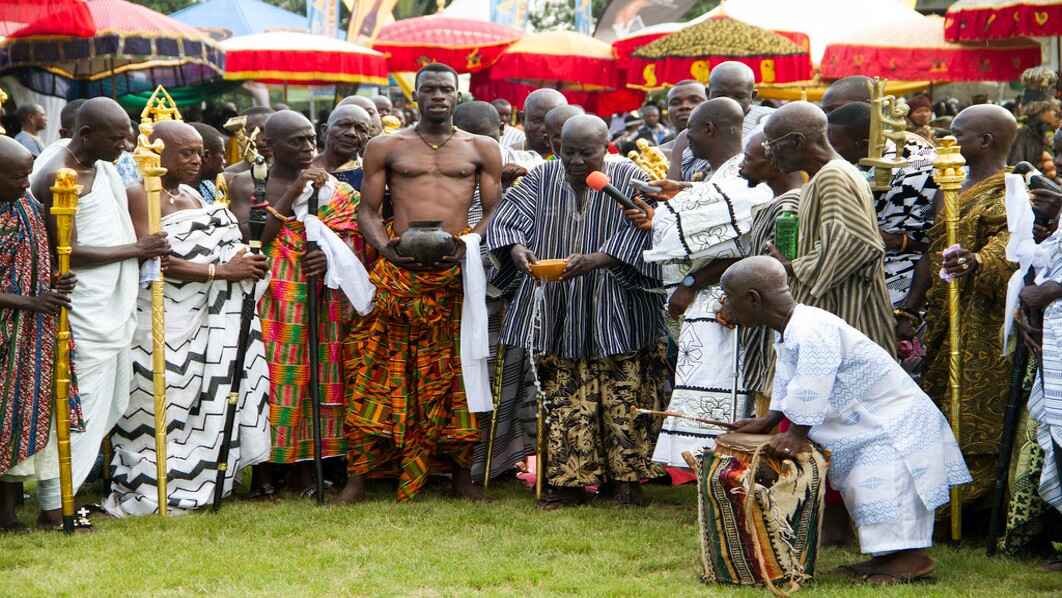To start with, libation is an English word derived from the Latin word ‘libatio’ and simply means the act of pouring a liquid as a form of offering or honour. Let’s bring it home.
Libation In Africa: Myth Or Not?
Libation in its purest form and purpose is not a myth but a usual practice in many African ceremonies. It is a belief that is carried out with respect for tradition. It is believed that respect is paid and the presence of the spirit, god, or ancestor is invoked. This implies reverence and presence before the commencement of the ceremony.
Gliding through the waves of history and cultural practises, libation is a common, sort of unifying method, observing the trend of practise in various cultures of the world that have likely not influenced or imitated each other due to proximity. Hence, libation is seemingly habitual, spiritual, and cultural. It is paying obeisance and invoking the ancestor, god, spirit, or God that is being called upon. Many cultures have libation as one of their traditional frameworks, which they apply at numerous events for different reasons. It is still practised primarily by African tradition believers today.
Safe to say, libation is not peculiar to a particular culture or people as it has been from antiquity and has been transferred from one generation to the other. The practice is handed down for posterity’s sake as it informs certain traditional and spiritual practices. African countries, like any other racial countries, uphold norms, customs, and traditions which have survived antiquity and are transmitted in the contemporary world.

When Do You Libate?
Libation is carefully observed at the beginning of an event, something one can call ‘intro’ in our modern parlance. Libation is performed for certain reasons, in some cases, it is a form of paying homage, celebrating a blessing, offering prayers, and acknowledging the presence of ancestors or spirits of a person or tribe. It is also used to invoke the participation of the ancestors or spirits or gods.
Cultural Standpoint
Some tribes have designated or indigenous names for it, the Igbo tribe of South-eastern Nigeria calls it ‘Itu mmai’, and the libation ritual is called ‘Challa‘ by the Ghanaians, they perform it before eating and at traditional events, and festivals like Asafotu and Homowo of the Ga Adangbe people of Ghana and Togo. It is performed at the installment of kings, queens, and chiefs, at childbirth, naming ceremony, traditional marriage ceremony, clansmen meetings, traditional events, and oracle consultation to mention but few.

For instance, in Yoruba and Igbo cultures, their traditional marriage ceremony has the libation ritual in its order of the program. The elder in the clan or family stands amid the gathering, holding the drink offering, mostly a gin or palm wine drink already poured into a cup; he raises it and begins to say prayers for the blessing of the ancestors to come upon the event and the couple being joined. After the prayer, he pours the drink on the earth as a symbol of offering or sacrifice. It connotes the link between the living and the ancestors who are dead (buried in the earth). It is believed that the libation ceremony should be first carried out before the commencement of the ceremony and sharing of food.
The modern African world is filled with people of different religions and these religions inform the continuity or the discontinuity of certain cultural practices such as libation. However, modernity and religion have not sufficed as reasons to stop the practice of libation.
















